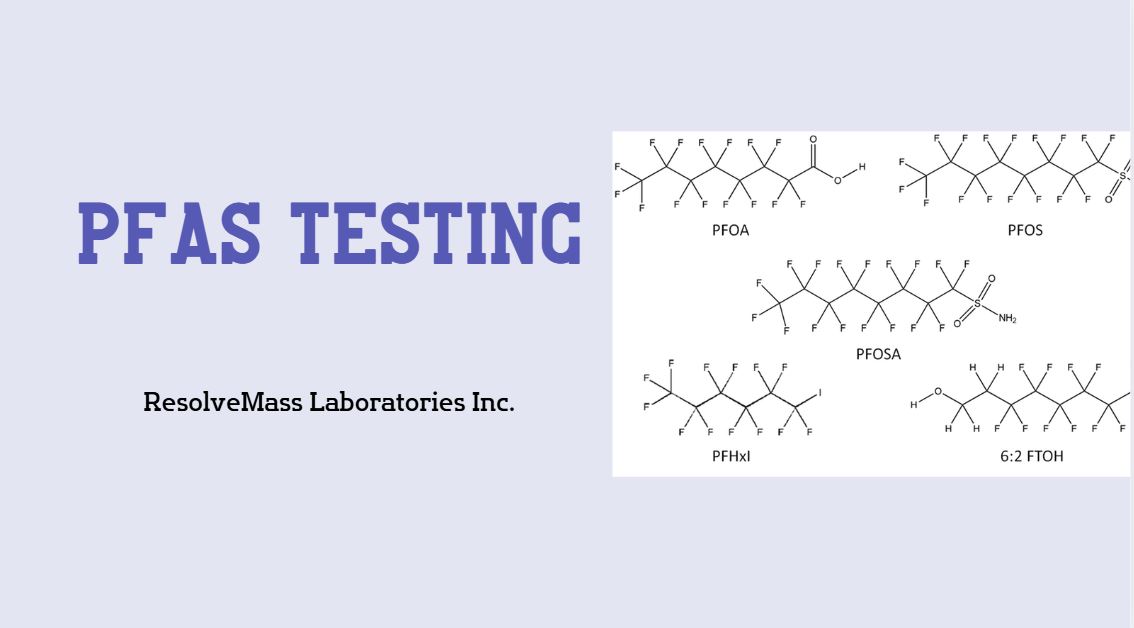Introduction
In the fast-evolving world of isotope chemistry, Custom Deuteration Strategies play a vital role in improving molecular stability, enhancing analytical precision, and enabling better tracking of reaction mechanisms. Whether through selective or global labeling, these methods help researchers fine-tune molecular properties for applications in pharmaceuticals, polymers, and advanced materials.
At ResolveMass Laboratories Inc., we focus on developing innovative and precise Custom Deuteration Strategies that meet exact research requirements. Our team uses advanced synthesis methods, strict analytical validation, and scientific expertise to ensure each labeled molecule achieves the highest isotopic purity and consistency.
Summary of This Article
- Understanding custom deuteration strategies: selective vs global labeling
- Comparison of synthesis approaches in deuterated compound preparation
- Analytical techniques for verifying deuteration accuracy
- Key applications in pharmaceuticals, polymers, and NMR research
- Why ResolveMass Laboratories Inc. is a trusted name in custom deuteration synthesis
Each section provides actionable insights for researchers, chemists, and professionals aiming to select the right deuteration method for their unique project needs.
What Are Custom Deuteration Strategies?
Custom Deuteration Strategies are specialized scientific techniques where hydrogen atoms in a molecule are replaced with deuterium. This substitution helps modify properties like chemical stability, reactivity, and NMR visibility. By doing so, researchers gain improved data accuracy and molecular insight.
Deuterium’s higher mass compared to hydrogen enhances signal clarity and minimizes spectral overlap in analytical testing. These labeling techniques have become essential in isotope chemistry, where precise control of labeling sites is crucial for reliable results.
Types of Custom Deuteration
- Selective Labeling: Targets specific molecular sites or functional groups.
- Global Labeling: Replaces hydrogen atoms throughout the entire molecular framework.
Each technique serves distinct research goals—ranging from kinetic isotope studies and structural analysis to drug design and metabolic tracing.
Learn more about our advanced synthesis processes here.
Selective vs Global Labelling in Custom Deuteration Strategies
Selective Labelling
In selective deuteration, only chosen parts of a molecule are replaced with deuterium. This approach helps maintain the molecule’s original behavior while offering precise analytical insights.
Key Advantages:
- Retains the compound’s chemical and physical properties.
- Perfect for targeted molecular studies and mechanism tracking.
- More cost-effective compared to complete deuteration.
For instance, deuterating the α-position of amino acids enhances NMR signals without disturbing other molecular regions. Selective labeling is especially useful in pharmaceutical and metabolic research where accuracy matters most.
Global Labelling
Global labeling replaces almost all hydrogen atoms with deuterium, resulting in a uniformly deuterated compound.
Advantages:
- Ensures consistent isotope substitution throughout the molecule.
- Improves chemical and thermal stability.
- Reduces oxidative degradation, extending compound life span.
This approach is widely used in metabolic tracing, materials science, and advanced analytical applications. ResolveMass Laboratories Inc. provides both selective and global labeling solutions with unmatched precision, guaranteeing reliability and scalability for any research or industrial purpose.
Synthesis Approaches in Custom Deuteration Strategies
| Approach | Description | Applications |
|---|---|---|
| Catalytic Exchange | Replaces hydrogen using metal catalysts (Pd/C, PtO₂) | Pharmaceuticals, intermediates |
| Hydrogen–Deuterium Exchange (HDX) | Reversible solvent-based hydrogen replacement | Protein and metabolic studies |
| Reductive Deuteration | Uses D₂ gas or NaBD₄ as reducing agents | Labeled alcohols and amines |
| Biocatalytic Methods | Enzymatic incorporation of deuterium | Biologically relevant molecules |
| Polymer Deuteration | Custom polymer labeling for enhanced stability | Electronics, materials science |
At ResolveMass, every synthesis pathway is optimized for reactivity, isotopic enrichment, and production scalability. Our scientists carefully balance cost, time, and isotopic yield, ensuring maximum consistency and efficiency. Continuous process improvements help us deliver reliable, reproducible isotopic labeling across all product batches.
Analytical Characterization of Deuterated Compounds
Precise analytical validation is critical for confirming both deuterium placement and enrichment levels.
Our analytical characterization includes:
- ¹H, ²H, and ¹³C NMR Spectroscopy
- GC-MS and LC-MS isotope ratio analysis
- FTIR spectroscopy for D/H vibration identification
Additional tools like IRMS (Isotope Ratio Mass Spectrometry) verify isotopic uniformity and purity. These thorough checks guarantee that every batch produced by ResolveMass Laboratories meets strict research-grade standards.
Applications of Custom Deuteration Strategies
Pharmaceuticals
Deuterated APIs show greater metabolic stability and lower clearance rates, improving drug performance and safety. [Explore deuterated APIs]
Polymers
Used for neutron scattering and stability studies, deuterated polymers enhance durability and provide valuable insights into material behavior. [Learn about deuterated polymers]
NMR Research
Deuterated acrylamide derivatives improve spectral resolution, making molecular structure analysis more precise.
Electronics
Deuterated reagents strengthen material resistance under stress, improving device longevity and performance.
Isotope-Labeled Standards
These compounds act as internal standards in mass spectrometry, increasing the accuracy of trace-level detection.
Custom Deuteration Strategies are thus key enablers in advancing pharmaceuticals, analytical science, and materials technology.
Why ResolveMass Laboratories Inc. Leads in Custom Deuteration
ResolveMass Laboratories Inc. is a trusted North American partner for producing high-quality deuterated compounds. Our reputation is built on scientific excellence, precision, and collaboration.
Why Clients Choose ResolveMass:
- Proven Expertise: Specialized experience in isotope labeling and synthesis.
- Advanced Facilities: Equipped with top-tier isotope synthesis and purification systems.
- Regulatory Compliance: Fully compliant with ISO and GMP standards.
- Collaborative Support: Personalized project planning and ongoing technical guidance.
By combining innovation and precision, we ensure that every synthesis aligns perfectly with client goals. Explore our full availability of deuterated chemicals today.
Conclusion
Custom Deuteration Strategies—whether selective or global—are transforming molecular design, analytical research, and material innovation. Through advanced synthesis, detailed validation, and tailored project execution, ResolveMass Laboratories Inc. continues to lead in providing reliable deuterated solutions for academia, pharmaceuticals, and industrial research worldwide.
Connect with our experts:
Contact ResolveMass
FAQs on Custom Deuteration Strategies
Custom Deuteration Strategies involve replacing hydrogen atoms in a molecule with deuterium to modify its chemical or physical behavior. This substitution enhances molecular stability, improves analytical precision, and helps scientists study reaction pathways more effectively. These strategies are vital tools in modern research and development across multiple scientific industries.
Selective deuteration focuses on substituting hydrogen atoms only at specific positions within a molecule, providing targeted data for analytical or biological studies. Global deuteration, on the other hand, replaces nearly all hydrogen atoms with deuterium, ensuring uniform isotopic labeling. Both methods serve distinct purposes depending on the level of precision and data required.
Deuteration is widely used in pharmaceutical research to improve drug stability and extend the compound’s half-life. By replacing hydrogen with deuterium, the resulting molecules often resist metabolic breakdown, enhancing their therapeutic performance. This makes deuterated drugs more reliable and efficient for long-term treatments.
Among the available methods, catalytic and reductive deuteration techniques generally achieve the highest levels of deuterium incorporation. These methods use specific catalysts or reducing agents to ensure precise hydrogen-to-deuterium exchange. When optimized, they provide superior labeling efficiency suitable for high-purity research compounds.
Hydrogen–deuterium exchange (HDX) is a reversible reaction where hydrogen atoms in a molecule are replaced by deuterium in a controlled solvent environment. This process is often used to study protein dynamics and molecular interactions. HDX provides valuable insights into structural stability and reaction behavior.
Deuteration can significantly improve a material’s physical and chemical stability. Incorporating deuterium often enhances resistance to heat, oxidation, and environmental degradation. These changes make deuterated materials ideal for applications in electronics, polymers, and advanced manufacturing technologies.
References
- Munir, R., Zahoor, A. F., Khan, S. G., Hussain, S. M., Noreen, R., Mansha, A., Hafeez, F., Irfan, A., & Ahmad, M. (2025, August 21). Total syntheses of deuterated drugs: A comprehensive review. Top Current Chemistry (Cham), 383(3), 31. https://doi.org/10.1007/s41061-025-00515-x
- Kopf, S., Bourriquen, F., Li, W., … & Morandi, B. (2022). Recent developments for the deuterium and tritium labeling of organic molecules. Chemical Reviews, 122(6), 6634-6713. https://doi.org/10.1021/acs.chemrev.1c00795
- Di Martino, R. M., Maxwell, B. D., & Pirali, T. (2023). Deuterium in drug discovery: Progress, opportunities and challenges. Nature Reviews Drug Discovery, 22(7), 562–584. https://doi.org/10.1038/s41573-023-00703-8


